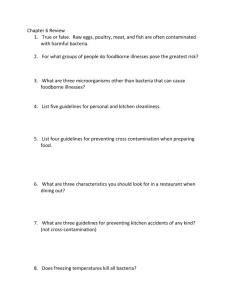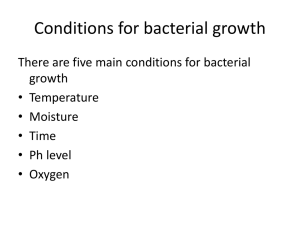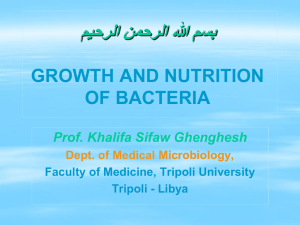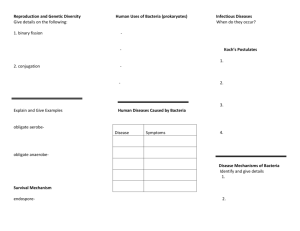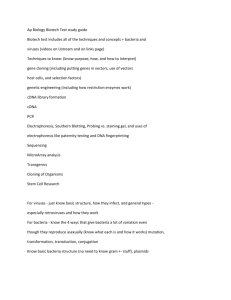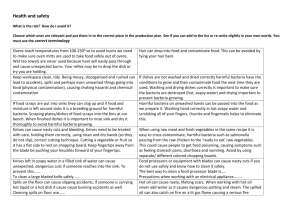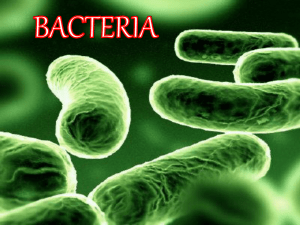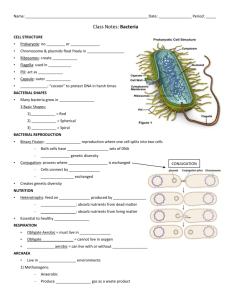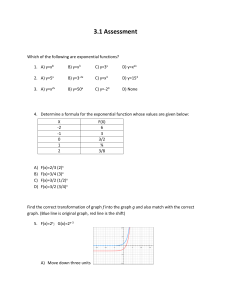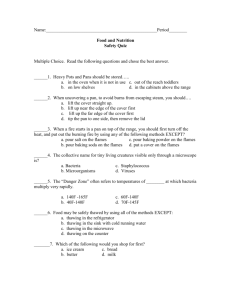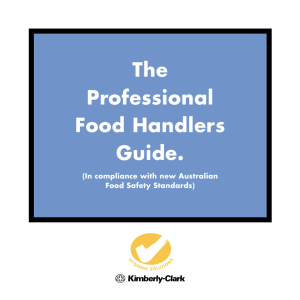food hygiene course for volunteers test paper
advertisement
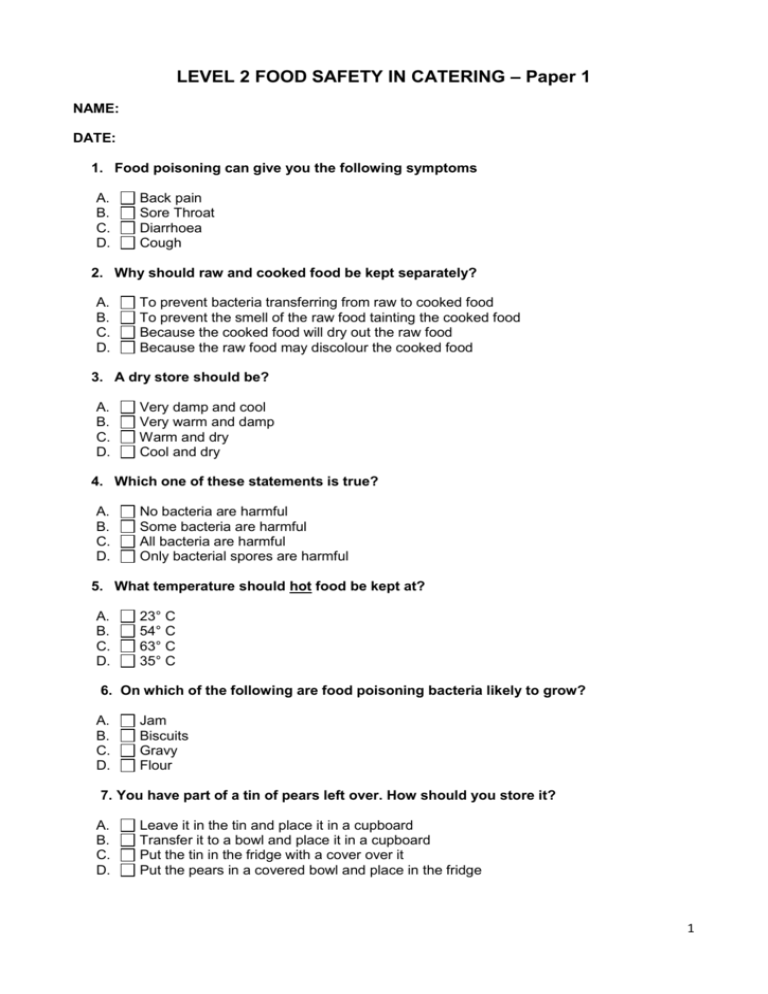
LEVEL 2 FOOD SAFETY IN CATERING – Paper 1 NAME: DATE: 1. Food poisoning can give you the following symptoms A. B. C. D. Back pain Sore Throat Diarrhoea Cough 2. Why should raw and cooked food be kept separately? A. B. C. D. To prevent bacteria transferring from raw to cooked food To prevent the smell of the raw food tainting the cooked food Because the cooked food will dry out the raw food Because the raw food may discolour the cooked food 3. A dry store should be? A. B. C. D. Very damp and cool Very warm and damp Warm and dry Cool and dry 4. Which one of these statements is true? A. B. C. D. No bacteria are harmful Some bacteria are harmful All bacteria are harmful Only bacterial spores are harmful 5. What temperature should hot food be kept at? A. B. C. D. 23° C 54° C 63° C 35° C 6. On which of the following are food poisoning bacteria likely to grow? A. B. C. D. Jam Biscuits Gravy Flour 7. You have part of a tin of pears left over. How should you store it? A. B. C. D. Leave it in the tin and place it in a cupboard Transfer it to a bowl and place it in a cupboard Put the tin in the fridge with a cover over it Put the pears in a covered bowl and place in the fridge 1 8. Which of the following is the best material for a work surface in a kitchen? A. B. C. D. Wood Marble Formica Stainless Steel 9. What is the best way to clean floors? A. B. C. D. Sterilise them every day Mop with cool water and leave them wet Remove dirt with hot water and detergent Clean the parts you can get at with hot water 10. Why is it so important to wash your hands? A. B. C. D. To prevent the transfer of infection To remove grease and dirt To prevent hands from getting sore To give a neat and tidy image to patients 11. Why are disinfectants used? A. B. C. D. To remove stains To reduce bacteria to a safe level To kill bacteria completely To remove dirt and grease 12. Flies usually cause food poisoning by? A. B. C. D. Being in the kitchen Laying eggs in the kitchen Flying around the kitchen Crawling on rubbish and then onto food 13. In ideal conditions how long does it take for bacteria to multiply? A. B. C. D. 20 to 30 seconds 1 to 2 hours 10 to 20 minutes 40 to 60 minutes 14. Which of the pairs below are connected to Salmonella food poisoning? A. B. C. D. Eggs and rice Chicken and vegetables Eggs and chicken Lettuce and chicken 15. Bacteria that cause food poisoning are found in? A. B. C. D. Hair Nose Raw Food All of these 2 16. Why should you cover cuts with COLOURED WATERPROOF dressings? A. B. C. D. They will stay on longer They look cleaner It is nice to coordinate the colour with our uniform They are easier to see if they fall into food 17. After which one of the following is it MOST important to wash your hands? A. B. C. D. Taking a coffee break Washing up Making a cup of tea Setting the table 18. If you have a runny nose or a sore throat what is the first thing to do when you get to work? A. B. C. D. Get on with your work Take some medicine Cover your face with a handkerchief Report it to the Ward Hostess or Ward Sister 19. Which of the following temperatures is in the danger zone? A. B. C. D. -18° C 24° C 70° C 120° C 20. Detergents and hot water should be used together because? A. B. C. D. They kill all bacteria They remove ground in dirt They remove grease and dirt They remove all stains 21. Many foods can be kept longer if they are? A. B. C. D. Washed, dried or canned Chopped, frozen or dried Frozen, vacuum packed or washed Canned, frozen or dried 22. Chopping boards used for the preparation of cooked meats should be disinfected? A. B. C. D. Three times per day At the end of the day Once a week Each time they are used 23. Bacteria need certain conditions to grow, which one of the following is essential? A. B. C. D. Dryness Cold atmosphere Warmth Darkness 3 24. Food handlers should keep their nails? A. B. C. D. Short Long for undoing knots Well varnished to stop them breaking Polished 25. What should you do if you see a cockroach in the premises? A. B. C. D. Jump on it and carry on working Shoo it away Report it to your supervisor Spray it with insecticide Well done! You have finished the course. Please hand your marked sheet into the Macmillan Unit at Christchurch Hospital for the attention of Anita Rigler or save to your computer and email anita.rigler@rbch.nhs.uk Your mark and a certificate will follow. 4

